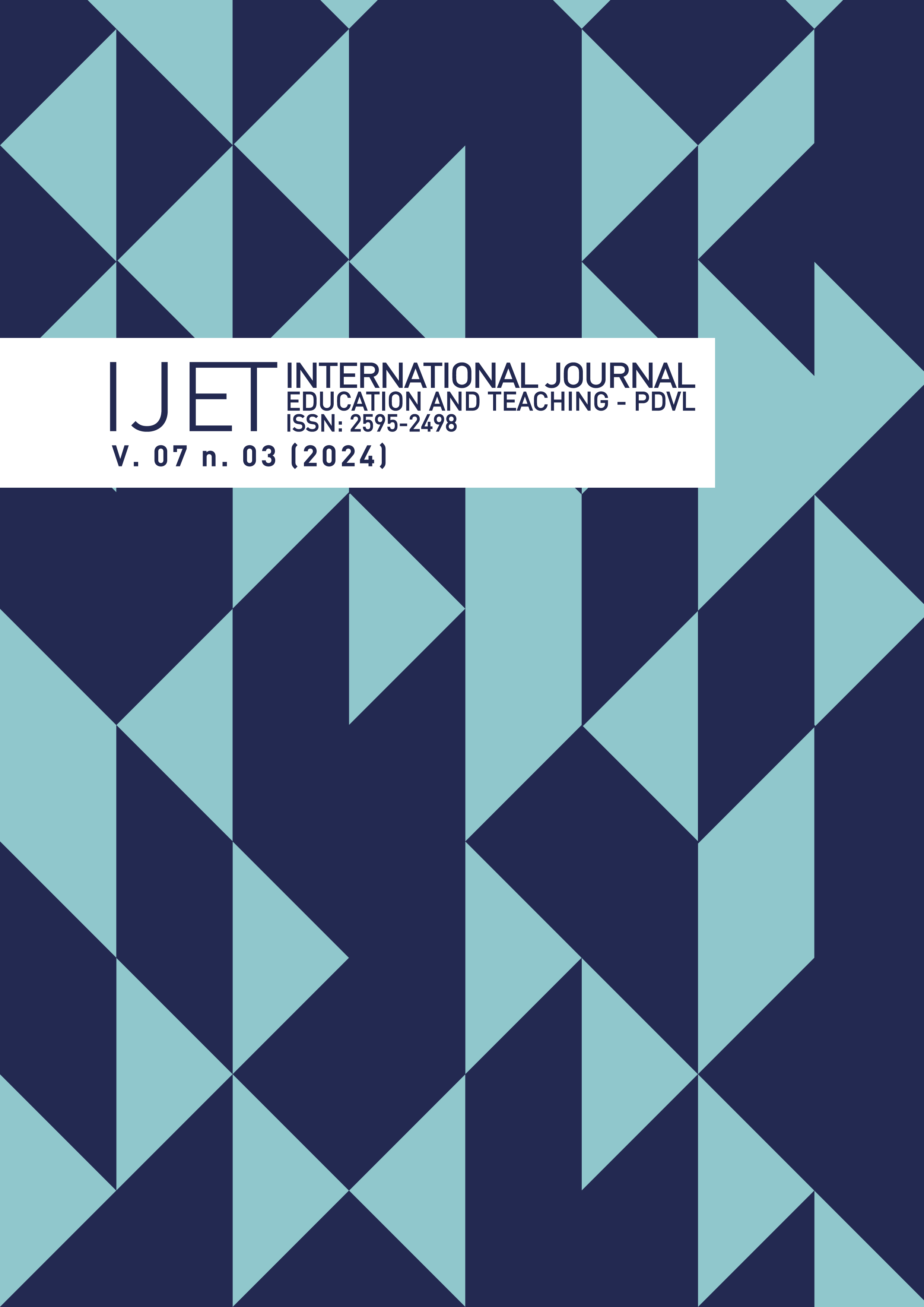REMOTE TEACHING DURING THE PANDEMIC
AN EFFECTIVE INVESTIGATION IN THE 8TH GRADE CLASS OF A MUNICIPAL SCHOOL IN URUÇUÍ-PI
DOI:
https://doi.org/10.31692/2595-2498.v7i3.384Keywords:
remote teaching, school, difficulties, students, teachersAbstract
Remote classes emerged suddenly as a technological innovation and a quick opportunity for students of any type of education to avoid extreme delays in the teaching-learning process and in the completion of the school year due to the suspension of face-to-face classes due to the COVID-19 pandemic. In view of this, this work aims to investigate the effectiveness of remote teaching implemented during the pandemic period in an 8th grade class at a municipal school in Uruçuí-PI. The problem situation aimed mainly to address all the difficulties and barriers faced specifically by students of the mathematics discipline in how to learn remotely during this period and also what the professional qualification of the teacher who would face this new sudden challenge should be. This investigation analyzed the new teaching methodology adopted for students to observe the remote teaching strategies with their applications and results, verify the difficulties involving both teachers and students with the new method, in addition to describing the technological tools that were being used to teach classes aimed at preparing students and teachers for their use. In this study, the research approaches both quantitative and qualitative forms. The results showed that remote classes did not contribute effectively to student learning due to the difficulty in handling technological equipment so that teaching could take place remotely. All of this showed that professional qualification is of utmost importance in any aspect to improve the teaching-learning process.
Downloads
References
BRASIL. Decreto de lei Nº 9.394, de 20 de dezembro de 1996. Disponível em:
http://portal.mec.gov.br/sesu/arquivos/pdf/lei9394.pdf Acesso em: 02 set. 2021.
BRASIL. Ministério da Educação. Parecer nº 5/2020, que dispõe sobre a reorganização do calendário escolar e sobre a possibilidade de cômputo de atividades pedagógicas não presenciais para fins de cumprimento da carga horária mínima anual, em razão da pandemia. Conselho Nacional de Educação. Brasília: Maio, 2020. Disponível em:
http://portal.mec.gov.br/index.php?option=com_docman&view=download&alias=14 5011-pcp005-20&category_slug=marco-2020-pdf&Itemid=30192 Acesso em: 05 set. 2021.
BRASIL, Dados sobre impacto da pandemia na educação. Instituto Nacional de Estudos e Pesquisas Educacionais Anísio Teixeira INEP. São Paulo, 20 mai. 2023. Disponível em: https://www.gov.br/inep/ptbr/assuntos/noticias/censo-escolar/divulgados-dados-sobre-impacto-dapandemia-na-educacao Acesso em 12 mai. 2023
Grupo NetCampos. Uruçuí Dicas Incríveis da cidade. Disponível em: < https://www.guiadoturista.net/america-do-sul/brasil/piaui/urucui>. Acesso: 14 mai. 2023.
INSTITUTO BRASILEIRO DE GEOGRAFIA E ESTATÍSTICA. Cidades: Uruçuí. 2021. Disponível em: https://cidades.ibge.gov.br/brasil/pi/urucui/panorama Acesso: 14 mai. 2023.
MARQUES, S.; OLIVEIRA, T. Educação, ensino e docência: reflexões e perspectivas. Revista Reflexão e Ação, Santa Cruz do Sul, v. 24, n. 3, p.189-211, Set./Dez. 2016. Disponível em: http://online.unisc.br/seer/index.php/reflex/index Acesso em: 09 abr. 2023 DOI: https://doi.org/10.17058/rea.v24i3.7346
MODELSKI, D.; GIRAFFA, L. M. M.; CASARTELLI, A. O. Tecnologias digitais, formação docente e práticas pedagógicas. Educ. Pesqui., São Paulo, v. 45, p. 1-17, 2019. DOI: https://doi.org/10.1590/s1678-4634201945180201
MORIN, Edgar. Os sete saberes necessários à educação do futuro. São Paulo: Cortez; Brasília: UNESCO, 2007.

Downloads
Published
Conference Proceedings Volume
Section
License
Copyright (c) 2024 Bruno Ribeiro de Mesquita, Felipe Soares Costa, Miguel Antônio Rodrigues (Autor)

This work is licensed under a Creative Commons Attribution 4.0 International License.










